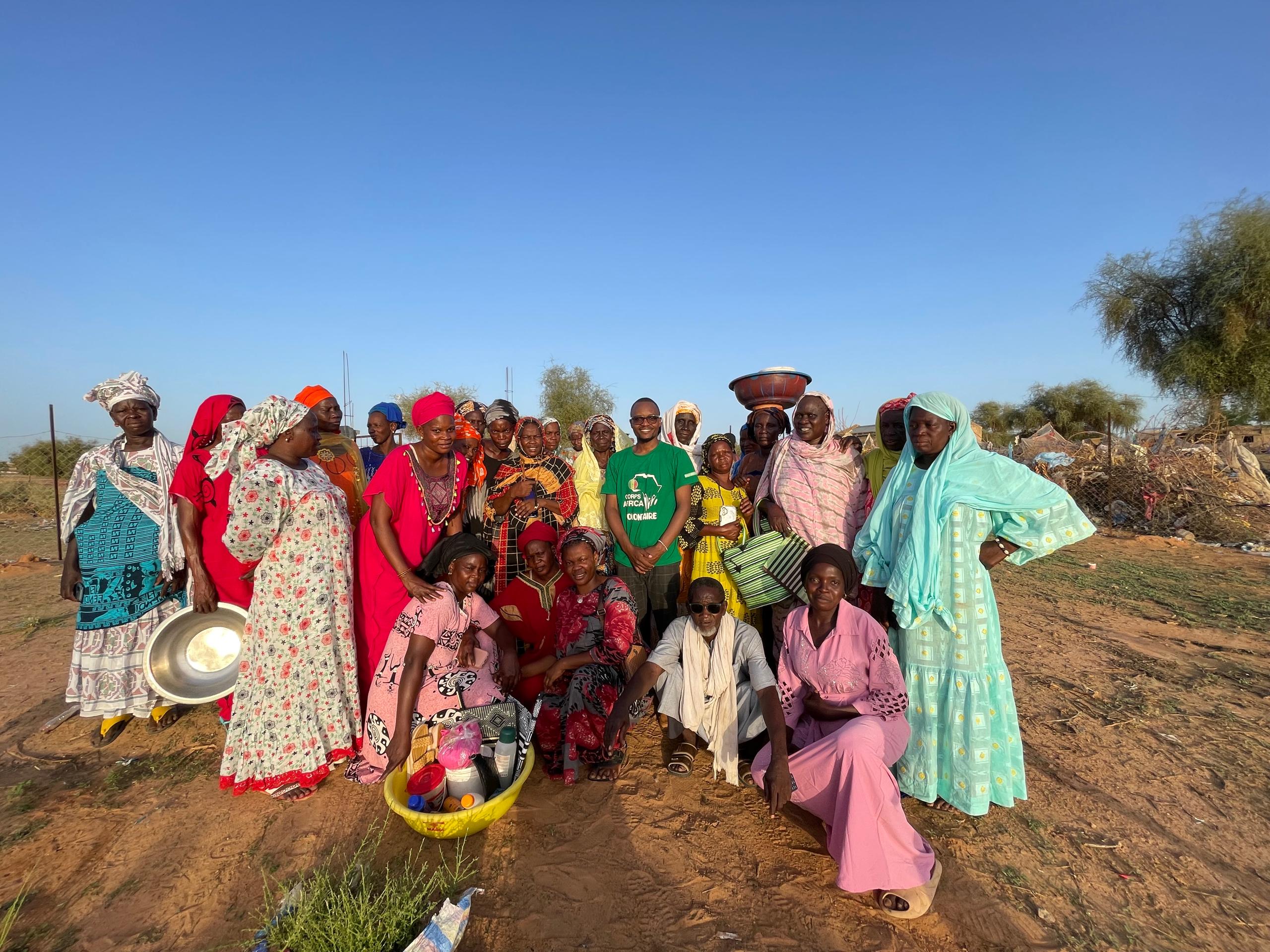When I boarded my flight from Rwanda to Senegal, I was filled with excitement, anticipation, and a thousand questions. What would it feel like to leave the land of a thousand hills for the sandy plains of Fouta? What would my host community be like? How would I communicate, connect, and contribute to a land so different from my own?
Little did I know that this journey would become one of the most transformational experiences of my life.
This is how it has begun.
I was assigned to the small rural village of Lougué Sabbé, nestled in northern Senegal, Podor department, St. Louis region, part of the legendary Fouta. Known for its unshakable sense of hospitality, Senegal lives up to its reputation as the land of Teranga—a word that means much more than “welcome.” It is a deep culture of inclusion and generosity, and Lougué Sabbé didn’t just host me—they embraced me.
But as warm as the people were, the climate was even warmer. Coming from Rwanda, where the average temperature is a cool 24°C (and rarely surpasses 30°C), I found myself living under scorching 46°C heat in Fouta. It was like walking into an oven every afternoon. I had to adjust every habit—from how I dressed to how I conserved energy during the peak of the day. It tested my resilience both physically and mentally. But I survived, I adapted, and I grew stronger.
Language was another mountain to climb. Wolof and Pulaar, the dominant local languages, were new territories for me. But thanks to our LCF (Language and Culture Facilitator) and my community’s patience and encouragement, I slowly built my vocabulary and understanding, not just of words, but of the values behind them.
Building Trust, One Conversation at a Time
Integration meant more than just learning language and customs—it meant becoming part of the rhythm of the village. I joined market days, attended naming ceremonies, fetched water with neighbors, and sat under mango trees with elders as we discussed community challenges.
I facilitated countless community meetings, helping villagers express their dreams and frustrations. Together, we mapped out assets and challenges, identified the strengths in their unity, and laid the groundwork for change. This participatory approach shaped the direction of my service.
We began small but meaningful projects. One of our early initiatives was mobilizing funds for five trash bins and five brooms for Lougué Sabbé Primary School—a powerful symbol of cleanliness and dignity. We also planted fruit trees together, understanding that the roots we plant today would feed generations tomorrow.
Jardin Maraîcher: Cultivating Hope
Through months of co-creation, meetings, and design sessions, we chose our main community project: the Jardin Communautaire—a fenced and irrigated community garden space.
The purpose? To empower the women of Lougué Sabbé, who are the backbone of this village but often limited by climate, illiteracy, and lack of opportunities. With crops often lost to animals and unreliable rains, the community needed a secure, sustainable solution. You can imagine the community living under the pre-mentioned temperature almost all the time, and how they survive while their life depends on agricultural activities, like many other rural communities.
We fenced the land, installed a watering system, and created a productive, shared farming space that now serves as a source of food security, income generation, and environmental regeneration. It was not just about agriculture—it was about dignity, ownership, and resilience.
This experience taught me more than any classroom ever could. I gained:
- Leadership through guiding meetings, mediating different perspectives, and mobilizing resources
- Communication skills by navigating multilingual conversations and making sure no one was left unheard
- Adaptability by thriving in extreme weather and unfamiliar systems
- Collaboration by working with local leaders, women’s groups, school administrators, and CorpsAfrica staff
- Gratitude—for the people who opened their homes and hearts to me
To the entire CorpsAfrica Senegal team, my colleagues, and my community in Lougué Sabbé—thank you. Your guidance, support, and solidarity made my service unforgettable.
To my fellow African youth, I say this: There is no greater honor than serving your people. No school teaches empathy like walking in someone else’s shoes. No leadership book replaces the wisdom of a rural mother teaching you how to plant okra or how to dream big with nothing but sand under your feet.
Volunteer. Serve. Learn. Grow. You won’t just change a community—you’ll change yourself.

